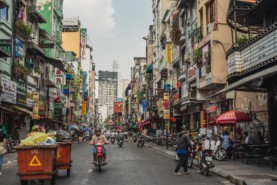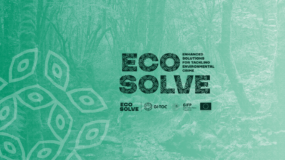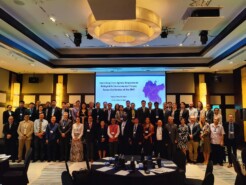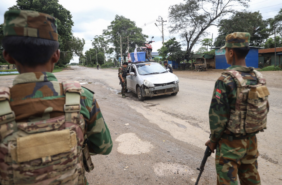Posted on 04 Oct 2022
In August, law enforcement agencies in the South Pacific and other stakeholders, including the Global Initiative Against Transnational Organized Crime (GI-TOC), convened in Fiji for the inaugural Pacific Regional Law Enforcement Conference. The objective of the meeting was to ‘strengthen a network to beat a network’ – a principle aligned with the GI-TOC’s mandate.
The results of the Global Organized Crime Index 2021 show that, of the world’s regions, Oceania exhibits the lowest average levels of criminality. This should not be interpreted, however, as meaning that the South Pacific island states are crime-free, as evidenced by Papua New Guinea’s high criminality score under the Index (5.44, which is above the global average of 4.88). And the region’s strong resilience to organized crime (scoring 5.46 under the Index) sees a sharp decline when Australia and New Zealand are taken out of the equation.
Although the remote location of many Pacific Island countries might insulate them from certain security threats, the very fact they are geographical isolated, their vast and hard to patrol exclusive economic zones, coupled with often limited resources all point to the need for networked, regional and cross-agency approaches. At the law enforcement conference, participants highlighted the transnational nature of these countries’ criminal challenges and called for close collaboration between police, customs and immigration services as well as other agencies, including financial intelligence units.
Participants acknowledged the relevance of civil society actors in filling knowledge gaps on existing and emerging crime trends, and contributing to solutions. As part of a broader provision of crime-related open-source information on the region, we shared insights on the linkages between transnational organized crime and biological threats, such as the spread of infectious diseases. Building on related work conducted in the Mekong region in South East Asia, we aimed to sensitize regional law enforcement entities to these challenges, to the need for increased preparedness and for cross-sectoral collaboration between security agencies and practitioners from the health, agriculture and biosecurity sectors.
Established and emerging priorities
High on the meeting’s agenda was the issue of crimes that exploit the maritime environment. Illegal, unregulated and unreported (IUU) fishing is a significant priority in the region, given the reliance of Pacific Island countries on the fishing industry and the impact this criminal market has on vulnerable domestic populations, as the practice involves human trafficking and smuggling, and modern slavery. But human exploitation is also present onshore: countries such as Fiji are destinations for illegal migrants and human trafficking victims, who are often exploited working in industries such as the construction sector.
On the narcotics front, although marijuana is the most widespread drug found in the region, trafficking patterns are changing. The South Pacific is a transit region for opioids from South East Asia and cocaine from Latin America, destined for consumer markets in Australia and New Zealand. Although there is a scarcity of information on how the COVID-19 pandemic affected drug trafficking routes, in the absence of rehabilitation facilities, domestic consumer markets are emerging, prompting countries to invest in demand- and harm-reduction interventions.
Participants also highlighted the issue of deportees, as many Pacific Island nationals deported from countries such as Australia and the US become gang leaders in their countries of origin, having acquired new criminal skills abroad.
In line with global trends, the cyber-domain is increasingly the conduit for criminal activities and one area where Pacific law enforcement agencies would benefit from additional capacity. Although financial crimes such as money laundering and pyramid schemes have long been on the radar of regional authorities, more needs to be understood about the use of cryptocurrencies for illicit payments.
Foreign actors: the good, the bad and the ugly
Although less so than in other regions, Pacific Island countries are affected by foreign influence, including from neighbouring Australia and New Zealand, as well as France, the US and China. This influence comes in many forms, such as providing training for regional agencies. Although capacity building is welcome, some caution is called for. For instance, police officers trained by foreign partners whose standards and practices differ from one another might acquire skills and knowledge that are not always compatible. Bilateral support – as opposed to support provided through the regional security architecture – may pose challenges to implementing an integrated regional approach to transnational organized crime.
Foreign influence in the region can also be seen in the presence of foreign criminal actors. For example, sanctioned Chinese criminal leader Wan Kuok-koi, also known as ‘Broken Tooth’, has business interests in Palau. Announcing sanctions against Broken Tooth, the US Treasury underscored his criminal organization’s activities in the country, including corruption, bribery, drug and human trafficking, racketeering and illegal gambling. Broken Tooth is only one of a number of businesspeople who enjoy links to politics and the Chinese triads, a combination of protection that facilitates licit and illicit business ventures.
Gambling and casinos were discussed as emerging areas of concern for regional law enforcement. Chinese businesspeople have opened casinos in Palau and Samoa for foreigners and locals with dual nationality, and, here, the experience of South East Asia should serve as a cautionary tale. Our analysis shows that crimes committed in casinos go beyond money laundering to include a whole gamut of criminal activities, including drugs and human trafficking, and illicit trade in protected and endangered species.
Looking ahead
Issues discussed in the meeting will inform the forthcoming Transnational Organized Crime Disruption Strategy, which the Pacific Islands Forum Secretariat is currently drafting. This strategy follows the adoption by regional heads of state of the 2018 Boe Declaration on Regional Security, the key guiding document on security matters. In the declaration, countries have committed themselves to developing national security strategies to address emerging threats. To date, however, only a few have introduced new plans, making drafting this new regional approach to counter crime particularly relevant.
The GI-TOC is gearing up to deepen our analytical output and engagement in the Pacific, including an enhanced Oceania section in the 2023 iteration of the Global Organized Crime Index, and in-depth analyses of criminal networks and actors contributing to building resilience to transnational crime in Pacific Island countries. We envision these initiatives as the building blocks of wider engagement in the region, one that is too often excluded from strategic discussions – even though a renewed focus is needed to tackle existing crime and prevent new forms of criminality from taking hold.



